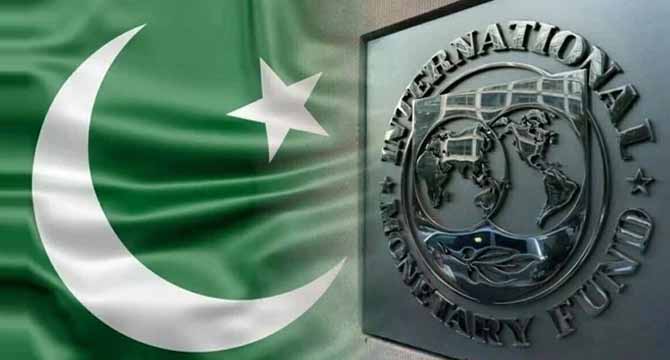ISLAMABAD/LAHORE , June 12, 2023: There is a wide consensus that the International Monetary Fund (IMF) won’t change its stance after the government unveiled the 2023-24 budget and is going to continue pressing Pakistan hard to meet all of its conditions, thus making it impossible to finalise the deal between the two sides.
In this connection, experts say the IMF has had a long list of concerns and demands as expressed repeatedly by its officials, including restoration of foreign exchange’s proper market functioning, keeping in mind programme goals in preparation of the budget, and adequate financing.
And given the broad nature of these conditions, any government would find it hard to please the international lender, especially when the country is set to hold general elections in the coming months.
One of the factors, these experts say, is the absence of political stability which has been translating into economic volatility. Last month, Nathan Porter – who is the IMF Mission Chief to Pakistan – commented on this subject which triggered a strong response by Pakistan.
“We take note of recent political developments, and while we do not comment on domestic politics, we do hope that a peaceful way forward is found in line with the Constitution and the rule of law,” Porter had said in reference to the May 9 events and the resultant action against the PTI.
In her reaction, State Minister for Finance Dr Ayesha Ghaus Pasha had described the statement as an interference in Pakistan’s domestic affairs.
Another issue is of adequate financing by friendly nations like China, Saudi Arabia and the United Arab Emirates while the targeted subsidies are also a bone of contentions with the government not ready to further hike the fuel and utilities prices.
Although Pakistan is of the opinion that the country is in a position to meet all of its obligations, the IMF is insisting on do more – clear and additional financial pledges by foreign countries.
It also wants to provide cheaper fuel for up to 800cc vehicles – a move that is still pending due to a strong opposition.
Moreover, further devaluation or keeping the market unchecked amid constant depreciation of rupee is not possible for the government as the country is experiencing a record-high inflation. Islamabad is also aiming at reducing the budget deficit through moves that can stop devaluation and curb imports against the IMF wishes.
But perhaps the main issue is the US not offering its support to convince the IMF to finalise the deal and that’s why the government circles have been indirectly saying that Pakistan is a victim of geopolitical developments in the region.
With the IMF deal seemingly in jeopardy, Finance Minister Ishaq Dar on Saturday defended the budget by describing it as growth-oriented and said the government was working on a “Plan B” if the IMF did not release the pending loan.
He, however, avoided to explain or share any details, saying, “Plan-B is always there”. He stated that the features of the plan could not be talked about in public and again reiterated that Pakistan would not default.

